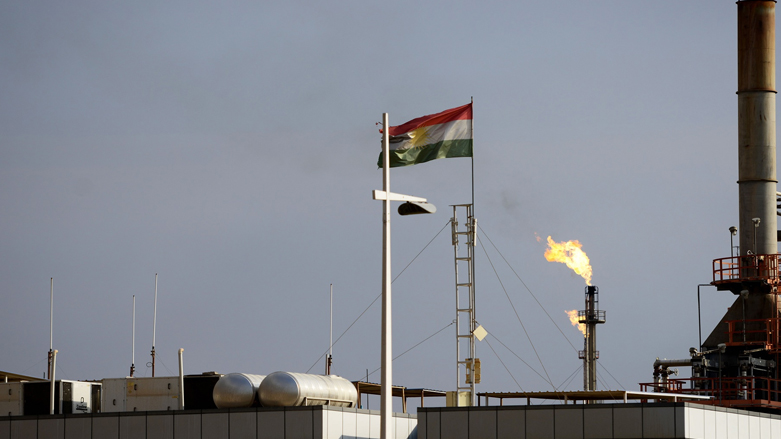Iraqi Federal Supreme Court's actions against oil companies are illegal: KRG Ministry of Natural Resources
"No court in Baghdad has the authority to make such a declaration," the MNR said.

ERBIL (Kurdistan 24) – The Iraqi Federal Supreme Court (FSC) has no authority to issue summonses to international oil companies (IOCs) that operate in the Kurdistan Region, the Kurdistan Regional Government's (KRG) Ministry of Natural Resources (MNR) said in a statement on Monday.
"Those IOCs - which include Addax, DNO, Genel, Gulf Keystone, HKN, Shamaran, and WesternZagros - operate in the Kurdistan Region in accordance with the Kurdistan Region's Oil and Gas Law (No. 22 of 2007), which was issued by the Kurdistan Regional Government in accordance with its powers under the Constitution of Iraq," the MNR said.
"These court summonses are the latest in a series of illegal actions taken by the Minister of Oil and his staff under the current caretaker government in Baghdad," it added. "These illegal actions are apparently based upon a ruling by a court in Baghdad that calls itself the 'Federal Supreme Court.'"
The MNR said that these cases came after the "so-called 'Federal Supreme Court' issued a politically motivated decision on 15 February 2022, which purported to declare the 2007 Oil and Gas Law void."
In that February ruling, the FSC had contentiously ruled that the Kurdistan Region's oil and gas deals were "unconstitutional."
"No court in Baghdad has the authority to make such a declaration," the MNR said.
On Feb. 28, just two weeks after the FSC ruling, the Kurdistan Region's four presidents – Prime Minister Masrour Barzani, President Nechirvan Barzani, Parliament Speaker Rewaz Faiq, and Head of the Cassation Court Abdul-Jabbar Aziz Hassan – issued a six-point statement rejecting the FSC ruling.
The meeting said that "the decision of the Federal Supreme Court is unacceptable, and that the Kurdistan Region will continue to exercise its constitutional rights and will not give up in any way its constitutional rights and entitlements, and will take all legal and constitutional measures in order to protect those rights."
Read More: Kurdistan Region issues six points on top Iraqi court ruling on oil and gas law
Moreover, on June 4, the Kurdistan Region's Judicial Council issued a statement upholding the validity of the 2007 Oil and Gas Law.
The judiciary said the management of oil and gas affairs is not one of the "exclusive authorities" of the federal government per Article 110 of the constitution.
Read More: Kurdistan Region judiciary rules KRG oil, gas dossier 'constitutional'
"The Council noted that Article 92(2) of the Constitution of Iraq requires that the Iraqi Council of Representatives pass a law to establish an Iraqi Federal Supreme Court. No such law has ever been enacted. Iraq, therefore, does not have a constitutionally established Federal Supreme Court," the MNR said.
Moreover, the MNR also said that the court that issued the Feb. 15 ruling purporting to invalidate the 2007 Oil and Gas Law has no constitutional authority to do such a thing.
"On the contrary, the issuance of the 2007 Oil and Gas Law was entirely authorised under the Constitution of Iraq. As such, legally, the Oil and Gas Law remains in full force," the MNR declared.
On June 2, the KRG filed a criminal complaint against the Director-General in the Baghdad Ministry of Oil, accusing him of abusing his power and position by intimidating and harassing the IOCs working in the Kurdistan Region.
Moreover, on June 5, the Erbil Court of Investigation ruled that the lawsuits filed in the Al Karkh commercial court against the IOCs must be brought to the Erbil Court to be examined as evidence in this criminal complaint.
Also, on June 5, the KRG's Minister of Natural Resources filed a civil suit against the Baghdad Minister of Oil.
"In the view of the Kurdistan Regional Government, the Minister is liable under applicable civil law provisions for sending emails and letters with the intention of intimidating the IOCs and interfering with the contractual rights of the IOCs and the Kurdistan Regional Government," the MNR concluded.